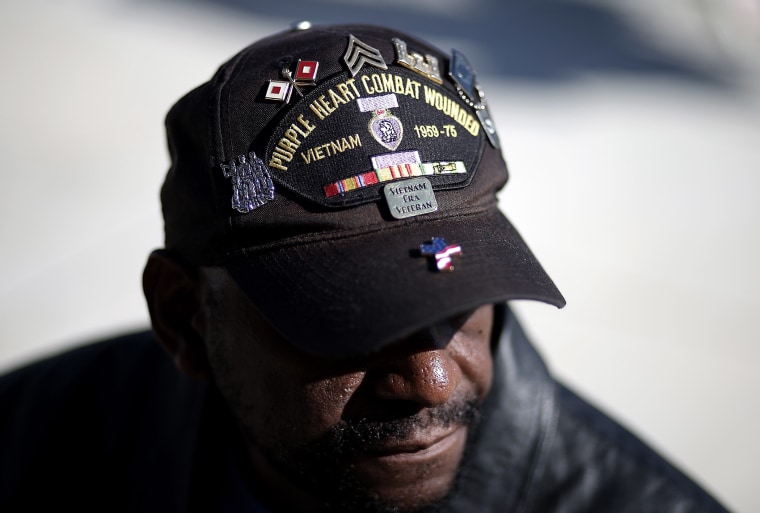The government shutdown may be over, but the consequences linger. Hundreds of thousands of veterans have been waiting months for Veterans Affairs to approve their disability claims—and 16 days without an operating budget during the shutdown further stalled efforts to reduce the department's massive backlog. Now the perpetually overextended VA is once again playing catch-up.
"They were up and running, things were going pretty smooth, they reduced [the backlog] by about one-third [in the last two quarters]," said Garry Augustine, executive director of Disabled American Veterans. "And boom, the shutdown comes, they slow down considerably and in some cases probably stopped altogether."
VA Secretary Eric Shinseki has said the agency will eliminate the backlog by 2015. Though VA had a backlog of approximately 418,000 claims on Oct. 1, the agency had cleared out more than 190,000 claims over the last six months. More than half of the veterans still waiting as of Oct. 5, though, had been waiting 125 days or more.
While claims were still processed during the shutdown, workers’ hours were reduced, including the elimination of mandatory overtime that Shinseki had instituted as a means of overcoming the backlog. As a result, "the backlog is largely flat," a VA spokesperson told MSNBC.com.
But VA Assistant Secretary Tommy Sowers said the shutdown would increase the backlog in an Oct.1 tweet. A VA spokesperson could not confirm to MSNBC.com whether that still holds true.
During the shutdown, staff did not, however, process any appeals for those veterans whose claims have been rejected. At last count, 259,133 claims were still waiting on appeal. Glenn R. Bergmann of the law firm Bergmann and Moore, which represents veterans seeking appeals, said that it was unfair to only process new claims.
"You're disadvantaging veterans who have had appeals in the system. You're subordinating older veterans against newer veterans," he said. "These guys are still Vietnam era, Korean era, some of them are just starting to be from [the first Gulf War], from Bush Sr. These aren't veterans who have bad cases and they're just trying to milk the system; we win these cases. These are just cases that have been lost, or VA doesn't want to grant them."
Some of those appeals have been languishing for as many as 15 years, said Bergmann.
"I talked to a guy, he's going to lose his house because he can't get the VA to adjudicate his claim," he said. "Because he can't get an answer from VA, he's going to end up losing his house, finding alternative housing that's cheaper, until he's given some sort of justice from VA, and he's able to get his benefits so he can live like a normal human being."
